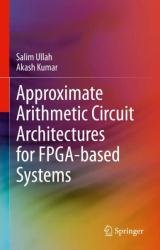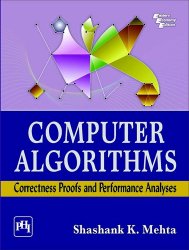 Название: Approximate Arithmetic Circuit Architectures for FPGA-based Systems
Название: Approximate Arithmetic Circuit Architectures for FPGA-based SystemsАвтор: Salim Ullah, Akash Kumar
Издательство: Springer
Год: 2023
Страниц: 189
Язык: английский
Формат: pdf (true)
Размер: 11.1 MB
Provides architectures of approximate arithmetic circuits optimized for FPGA-based systems.
This book presents various novel architectures for FPGA-optimized accurate and approximate operators, their detailed accuracy and performance analysis, various techniques to model the behavior of approximate operators, and thorough application-level analysis to evaluate the impact of approximations on the final output quality and performance metrics. As multiplication is one of the most commonly used and computationally expensive operations in various error-resilient applications such as digital signal and image processing and machine learning algorithms, this book particularly focuses on this operation. The book starts by elaborating on the various sources of error resilience and opportunities available for approximations on various layers of the computation stack. It then provides a detailed description of the state-of-the-art approximate computing-related works and highlights their limitations.
The prior works on circuit-level approximations have mainly focused on Application-specific Integrated Circuits (ASICs). However, Application-specific Integrated Circuit (ASIC)-based solutions suffer from long time-to-market and high-cost developing cycles. These limitations of ASICs can be overcome by utilizing the reconfigurable nature of Field Programmable Gate Arrays (FPGAs). However, due to architectural differences between ASICs and Field Programmable Gate Arrays (FPGAs), the utilization of ASIC-based approximation techniques for FPGA-based systems does not result in proportional performance and energy gains. Therefore, to exploit the principles of approximate computing for FPGA-based hardware accelerators for error-resilient applications, FPGA-optimized approximation techniques are required. Further, most state-of-the-art approximate arithmetic operators do not have a generic approximation methodology to implement new approximate designs for an application’s changing accuracy and performance requirements. These works also lack a methodology where a Machine Learning model can be used to correlate an approximate operator with its impact on the output quality of an application. This book focuses on these research challenges by designing and exploring FPGA-optimized logic-based approximate arithmetic operators. As multiplication operation is one of the computationally complex and most frequently used arithmetic operations in various modern applications, such as Artificial Neural Networks (ANNs), we have, therefore, considered it for most of the proposed approximation techniques in this book.
The primary focus of the work is to provide a framework for generating FPGA-optimized approximate arithmetic operators and efficient techniques to explore approximate operators for implementing hardware accelerators for error-resilient applications. Towards this end, we first present various designs of resource-optimized, high-performance, and energy-efficient accurate multipliers. Although modern FPGAs host high-performance Digital Signal Processing (DSP) blocks to perform multiplication and other arithmetic operations, our analysis and results show that the orthogonal approach of having resource-efficient and high-performance multipliers is necessary for implementing high-performance accelerators. Due to the differences in the type of data processed by various applications, the book presents individual designs for unsigned, signed, and constant multipliers. Compared to the multiplier IPs provided by the FPGA Synthesis tool, our proposed designs provide significant performance gains. We then explore the designed accurate multipliers and provide a library of approximate unsigned/signed multipliers. The proposed approximations target the reduction in the total utilized resources, critical path delay, and energy consumption of the multipliers. We have explored various statistical error metrics to characterize the approximation-induced accuracy degradation of the approximate multipliers. We have also utilized the designed multipliers in various error-resilient applications to evaluate their impact on applications’ output quality and performance.
Скачать Approximate Arithmetic Circuit Architectures for FPGA-based Systems
[related-news] [/related-news]
Комментарии 0
Комментариев пока нет. Стань первым!















